MOVIE REVIEW
Colin Farrell and Brendan Gleeson, together again in a Martin McDonagh story. Or should I say apart?
„What did I just watch?” You feel like saying, honestly, after seeing this movie. Pragmatically, the story seems absurd. People who get tired of living a good simple life on an Irish Island, a quiet corner of paradise, sheltered from the war. If they don’t have drama, they make it. Philosophically, it’s a symphony. The relentless passage of time is the only real drama. Psychologically, you understand everyone and this is the most annoying thing: the almost old Colm Doherty, a fiddler with fine tastes and high concerns, who wants to leave something behind and can’t afford to waste time anymore, the young Pádraic Súilleabháin, perfectly suited to his modest purpose, for whom the daily routine of going out to the pub with his friend is meaning and life, valuable in itself, his sister Siobhán, cultured, self-aware, realistic and eager for her place in the wide world, you even understand Dominic, the troubled boy, apparently silly, but quick to reply, funny and actually insightful.
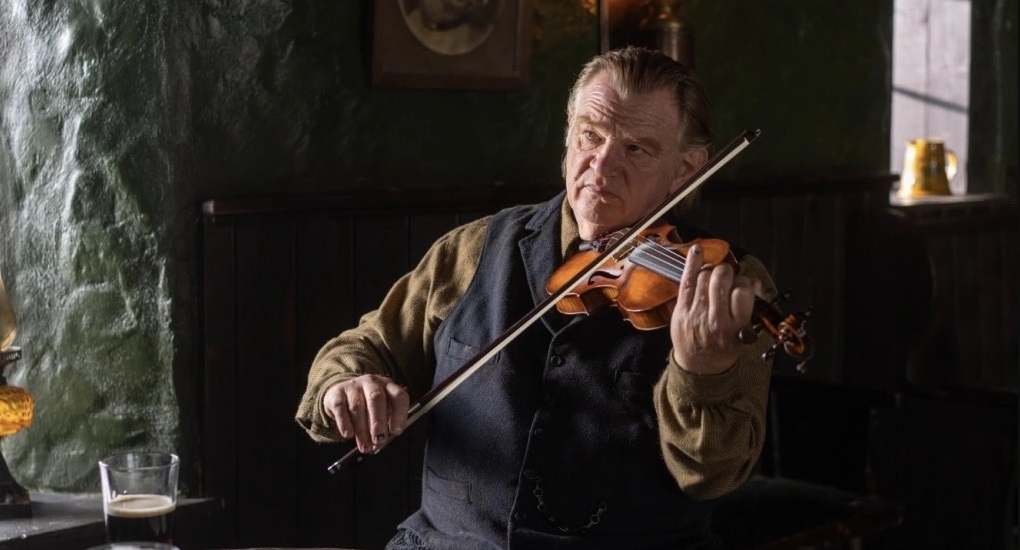
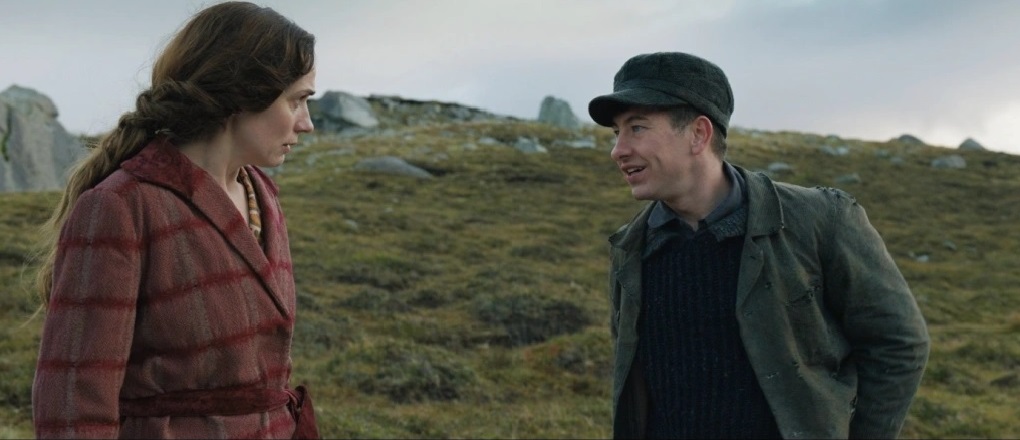
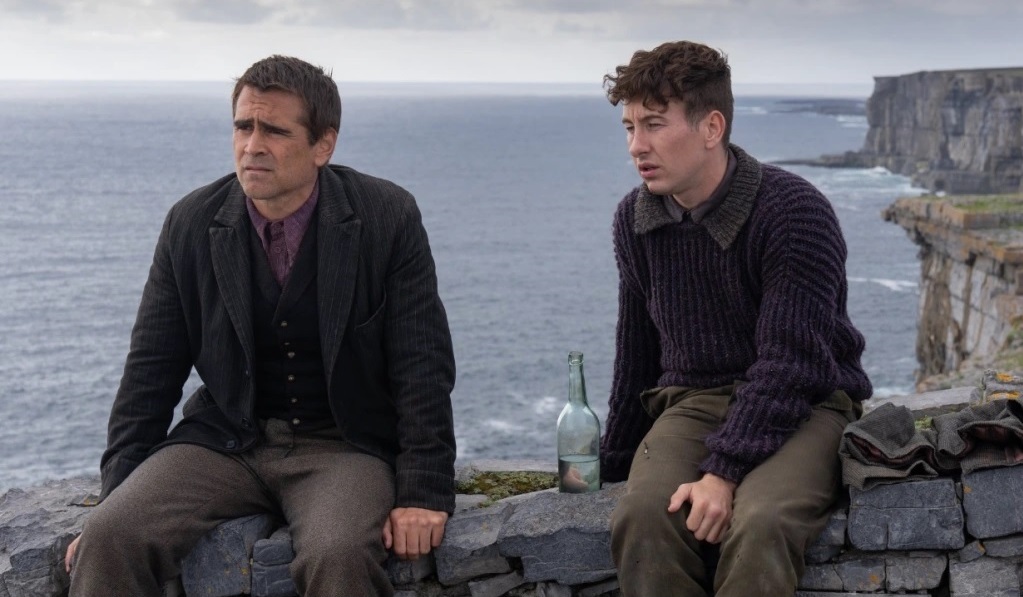
Fear, cruelty and the limitations of the mind
The conflict arises when the desperation not to die insignificantly of the one who aspires to creative heights collides with the stubbornness of the limited one, however well-intentioned, who doesn’t accept that things change. In the midst of an existential crisis, Colm (Brendan Gleeson) feels assaulted by the insistence of Pádraic (Colin Farrell), whom he treats dually, sometimes with unjustified cruelty, sometimes with mercy. Affectionate and kind, but endowed with much less nuance, Pádraic suddenly finds that, without actually doing something wrong, he is not that interesting anymore, but he even became a nuisance with his mere presence.
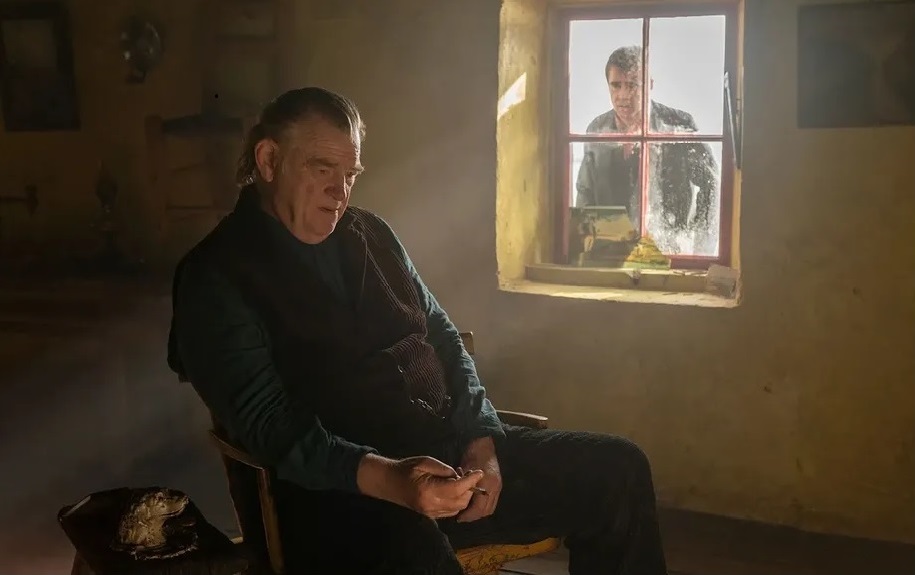
In a place where nothing ever happens and every day is the same, a village with no privacy or secrets is the least suitable setting for the unfolding of such a story. At least for its protagonists, ending up in embarrassing situations due to lack of options (there’s only only pub, one church, one convenience store/novelty „stock market”) and to the free mouth of anyone with an opinion.
Who’s the villain in this story?
Colm’s decision tot punish Pádraic’s stubbornness in a shocking way pushes the characters’ development in a murky direction for some and unexpectedly inspiring for others. The gentle Pádraic learns that, just like in toxic love affairs from a future not foreseen even by the incarnation of Banshee, the good guys are boring and the bad guys are interesting. One more hit and he becomes… something else.
The film’s title hints at the mythical figure from the Irish folklore, who mourns the death of someone close preventively and premonitory. Throughout the story, the allusion finds its echo in the strange and disheveled figure of old Mrs. McCormick and its explanation in the song composed by Colm, who believes that Banshees no longer announce they’re coming, but rather just assist at the unfolding of things. Little does the pretentious fiddler realize that, by doing what he’s doing, he himself is calling the evil spirits into their little world.

“And the Oscar goes to…” – waltzing on the grey notes of being
The key trait of a good film is to incite conversation and, in this respect, “The Banshees of Inisherin” does an excellent job, regardless of the emotions it stirs. Director Martin McDonagh (known for “In Bruges”, “Three Billboards Outside Ebbing, Missouri”) succeeded again to waltz on the grey notes of being. He placed this “dance” between the Aquamarine cool of the Atlantic and the Irish green to ensure we remember it anchored by beauty. The film has no less than nine Oscar nominations (including “Best Picture”) and has already won four BAFTA awards. Fingers crossed for tonight! (Review published just a few hours before the ceremony.)
Photos by Jonathan Hession, Searchlight Pictures
Later edit: the Oscar went another way, but the rich-in-content-and-nuances “Banshees” definitely remains a must-see.
„Spiritele din Inisherin”
RO “Dar la ce m-am uitat?!” îți vine să spui, onest, după vizionare. Privind-o pragmatic, povestea pare absurdă. Oameni cărora li se urăște cu binele, locuind pe o insulă irlandeză, într-un colț liniștit de paradis, la adăpost de război. Dacă n-au drame, și le inventează. Privind-o filosofic, e o simfonie. Trecerea implacabilă a timpului e singura dramă reală. Privind-o psihologic, îi înțelegi pe toți și aceasta e cel mai enervant: și pe aproape bătrânul Colm Doherty, un scripcar cu gusturi fine și preocupări înalte, care vrea să lase ceva în urmă și nu-și mai permite să cheltuiască timpul fără folos, și pe tânărul Pádraic Súilleabháin, perfect încadrat în rostul lui modest, pentru care rutina ieșirii zilnice la pub cu prietenul său e sens și viață, valoroasă prin ea însăși, și pe sora lui, Siobhán, cultivată, conștientă de sine, realistă și dornică de loc în lumea largă, chiar și pe Dominic, băiatul aiurit, aparent prostovan, dar iute la replică, amuzant și, de fapt, perspicace.
Conflictul apare când disperarea de a nu muri insignifiant a celui care aspiră la înălțimi creatoare se lovește de încăpățînarea celui limitat, oricât de bine intenționat, care nu acceptă ca lucrurile să se schimbe. Aflat în plină criză existențială, Colm (Brendan Gleeson) se simte agresat de insistențele lui Pádraic (Colin Farrell), pe care-l tratează dual, ba cu nejustificată cruzime, ba cu milă. Afectuos și bun, dar înzestrat cu mai puține nuanțe, Pádraic se trezește brusc că, fără să fi greșit propriu-zis cu ceva, nu mai e suficient de interesant, ba chiar deranjează cu simpla prezență. Într-un loc în care nu se întâmplă nimic și fiecare zi e la fel, un sat în care nu există intimitate sau secrete este cadrul cel mai puțin propice desfășurării unei astfel de povești. Cel puțin pentru protagoniștii ei, puși în situații jenante de însăși lipsa de opțiuni (o singură cârciumă, o biserică, un magazin universal/„bursă” de noutăți) și de gura slobodă a oricui are o opinie. Decizia lui Colm de a taxa încăpățânarea lui Pádraic într-un mod șocant împinge evoluția personajelor într-o direcție tulbure pentru unii și neașteptat de inspirată pentru alții. Blândul Pádraic află că, la fel ca în relațiile amoroase toxice dintr-un viitor neprevăzut nici de încarnarea lui Banshee, băieții buni sunt plicticoși, iar băieții răi sunt interesanți. O lovitură în plus și se transformă… în altceva.
Aluzia la figura mitică din folclorul irlandez, care jelește preventiv și premonitoriu moartea cuiva apropiat, transpusă în titlul filmului, își găsește ecoul în figura stranie și despletită a bătrânei doamne McCormick și își găsește explicația în melodia compusă de Colm, care crede că Banshees nu-și mai anunță venirea, doar asistă la desfășurarea lucrurilor. Nu-și dă seama pretențiosul scripcar că, prin ceea ce face, el însuși cheamă spiritele funeste în mica lor lume.
Atributul unui film bun e să genereze subiecte de conversație și, din acest punct de vedere, „The Banshees of Inisherin” se achită cu brio, indiferent ce emoții îți stârnește. Regizorul Martin McDonagh („In Bruges”, „Three Billboards Outside Ebbing, Missouri”) a reușit și de această dată un vals pe note de gri ale ființei. L-a plasat între răceala de acvamarin a Atlanticului și verdele irlandez ca să se asigure că ni-l amintim ancorat de frumusețe. Filmul are nu mai puțin de nouă nominalizări la Oscar (printre care și “Cel mai bun film”) și a obținut deja patru premii BAFTA.




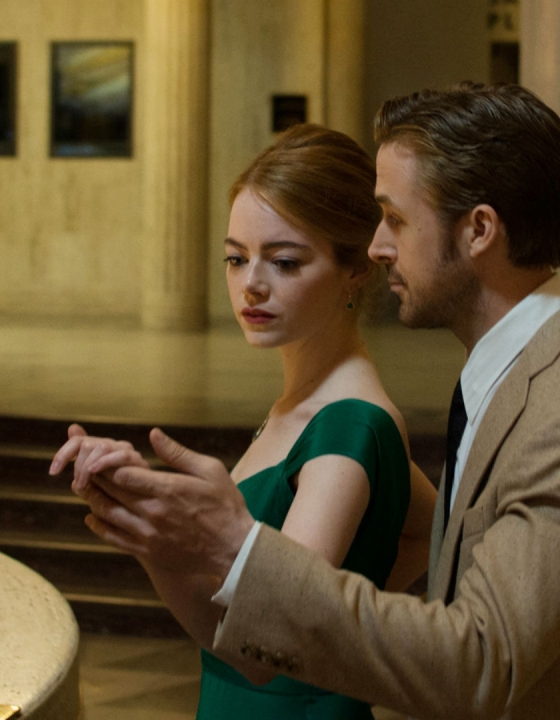
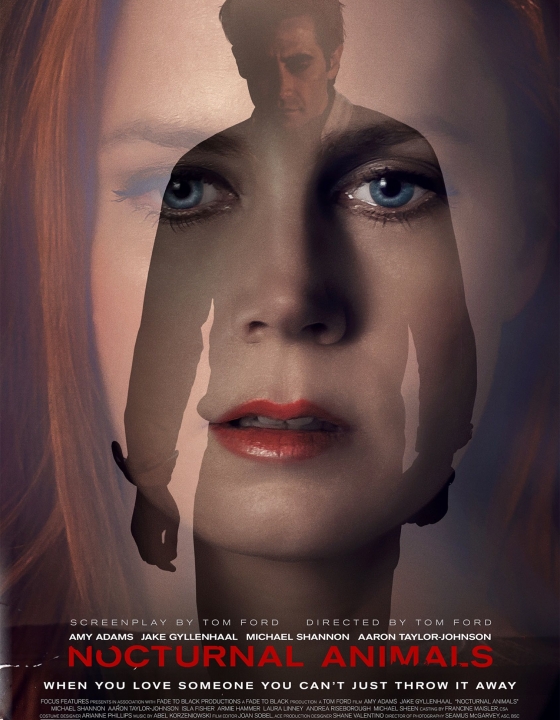
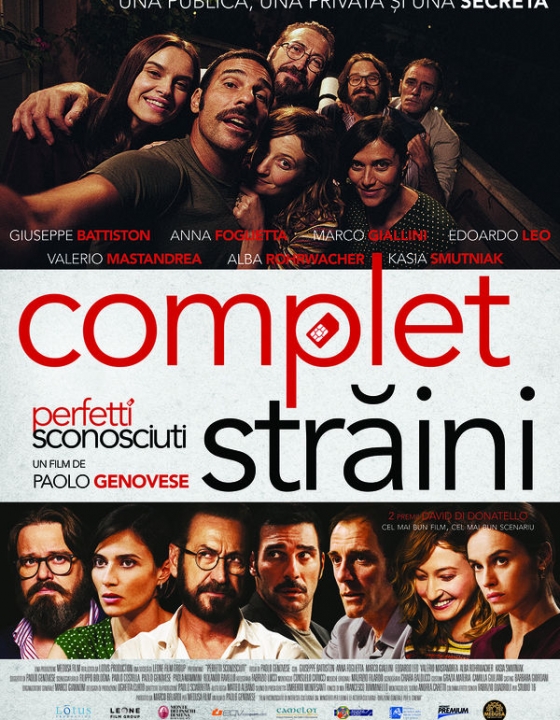
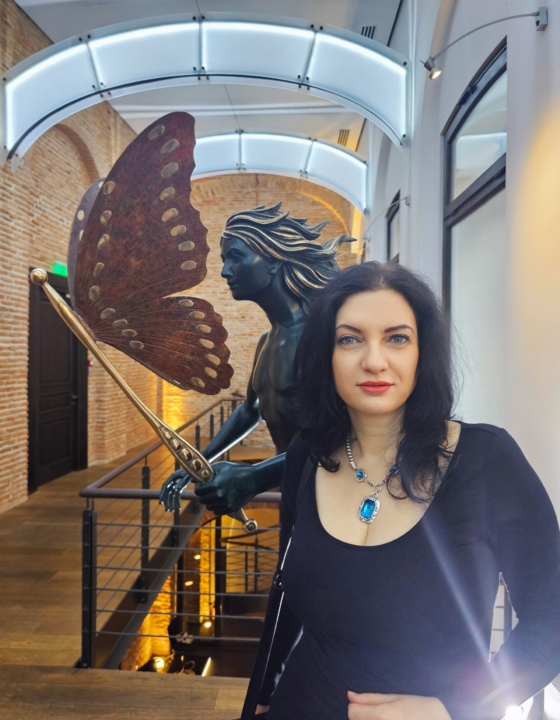
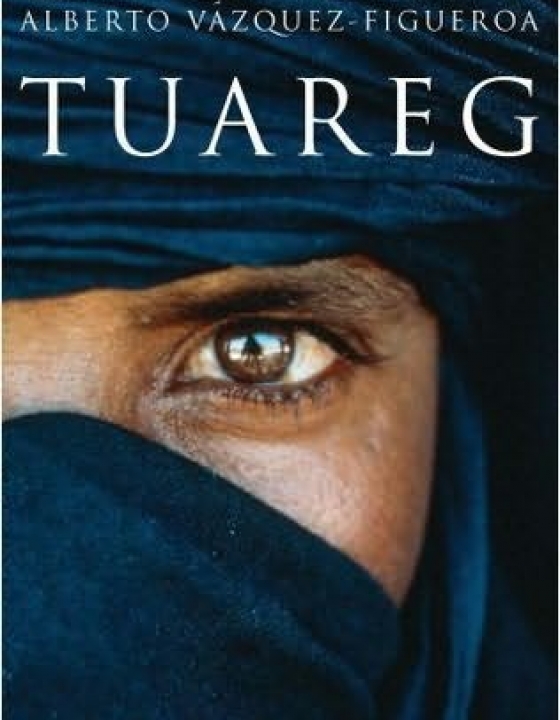




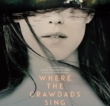
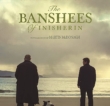

You must be logged in to post a comment.